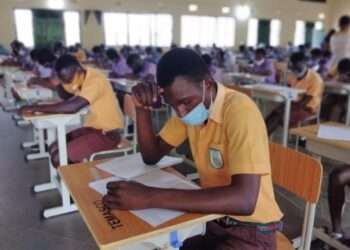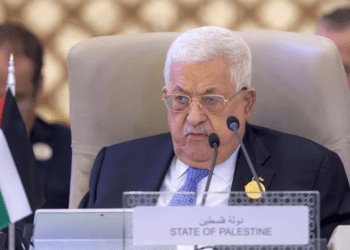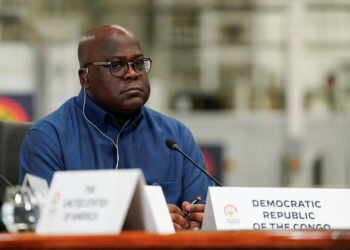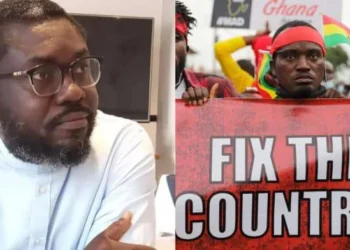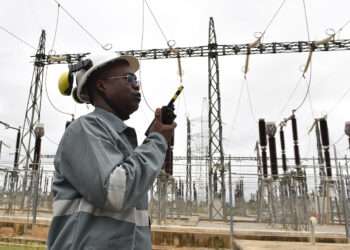Gabon’s newly elected president, Brice Oligui Nguema, is facing an uphill task to reform one of Central Africa’s most resource-rich yet underperforming nations. After securing a sweeping 90.35% of the vote in the April 2025 polls, Nguema’s promises of economic diversification, anti-corruption reform, and inclusive governance are under intense scrutiny.
To dissect Gabon’s transition and the credibility of Nguema’s reform agenda, Vaultz News engaged Benjamin Ankrah, pioneer of the New African Concept, for insights on how the administration might deliver meaningful change or risk entrenching the status quo under a different label.
Gabon has actively sought to diversify its economy from oil, and the urgency cannot be overstated. Oil revenues, historically the lifeblood of Gabon’s economy, are projected to decline from 2025. Coupled with high public debt and an inflated cost of borrowing due to governance weaknesses, the stakes are high.
Ankrah proposed bold yet grounded policy reforms in underutilized sectors. “The forestry sector, for instance, holds untapped potential.”
“To diversify, Gabon should implement sustainable forestry reforms, strictly enforce existing concession limits, mandate FSC certification, and reinvest timber fees into local sawmills and value‑added wood processing. In parallel, expand agroforestry by issuing smallholder permits tied to reforestation quotas, creating rural jobs while restoring degraded lands.”
Benjamin Ankrah

Mining and ecotourism are sectors also ripe for development.
“Transparent licensing for gold and manganese, and tax incentives for eco-lodges, could diversify income streams,” Ankrah noted. He recommended a ring-fenced stabilization fund for diversification projects, financed through luxury taxes instead of unpopular VAT hikes.
Fixing a Broken Social Contract
Gabon’s poverty rate of 34.3% and youth unemployment at 40% cast a long shadow. Ankrah emphasized revamping the social protection architecture without busting the budget.
“The key is precision and conditionality,” he explained. Conditional cash transfers, tied to school attendance, vocational training, or rural community service, could replace blanket subsidies.
A national public works program targeting youth, funded via time-bound grants, could address both joblessness and infrastructure gaps. “Private-sector apprenticeships, especially in agro-processing and green energy, should be incentivized with wage subsidies,” Ankrah added. Leveraging digital IDs and mobile payments could reduce leakage, while sunset clauses and donor co-financing protected against runaway recurrent costs. “It’s about spending smarter, not more,” he stated.
While Nguema has shifted from military strongman to elected president, his massive margin of victory has drawn skepticism. The use of an age-limit clause to bar opposition figures and the alleged absence of electoral transparency called the result into question.
For Ankrah, restoring faith in Gabon’s democracy is paramount.
“Nguema’s government should begin by empowering an independent electoral commission — recruiting commissioners by consensus of the ruling party, the opposition, and civil society — to oversee future polls.”
Benjamin Ankrah
Electoral reforms must include equal access to state media, spending limits, and protections for peaceful assembly.
Crucially, he recommended a national dialogue platform for civil society, youth, and opposition leaders to co-develop governance reforms and monitor implementation annually. Judicial independence was another pillar. “Merit-based appointments and civic education can foster long-term accountability,” Ankrah said.
Slashing Corruption
Ankrah drew lessons from across Africa. “Botswana’s anti-corruption model works because it’s independent and has teeth,” he stated, adding that Gabon needs a similarly empowered agency. Transparent e-procurement systems, public budget dashboards, and fiscal responsibility laws modeled after Seychelles could anchor credibility and reduce sovereign spreads.
Performance-based contracts for ministers, as in the case of Rwanda, would boost transparency. “The point is to make government predictable and measurable in the best sense.”
A key concern is whether Nguema’s reforms could mask a deeper consolidation of power. Ankrah warned that optics matter. “Without inclusive governance, reform looks like authoritarian repackaging,” he cautioned.
He recommended creating a “National Reform Council” inclusive of opposition parties, civil society, youth, and private stakeholders — anchored in clear milestones and monitored by third parties like the AU or UNDP. Piloting reforms at regional levels and holding regular listening tours could generate authentic buy-in.
As Gabon stands on the edge of either transformation or regression, all eyes are on whether Brice Oligui Nguema can turn bold pledges into tangible progress without repeating the cycles of exclusion and centralization that marked the Bongo era.
READ ALSO: Ghana’s Opioid Crisis Heightens Amid Regulatory Silence


